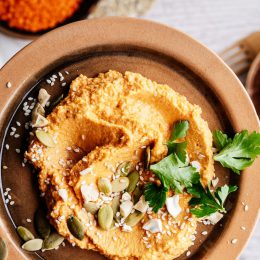7-Day Sleep Challenge: What to Eat for Better Sleep
Can what you eat during the day really make a difference to your sleep? Absolutely. These are the food and drink choices to focus on.
Keep up with the 7-Day Sleep Challenge here.
Sleep is every bit as important to your overall health as diet and exercise. Yet most older adults — make that most Americans, of all ages — aren’t as rested as they should be. In fact, according to the Centers for Disease Control and Prevention, only one in three adults gets enough shuteye.
The first line of defense when you’re trying to improve your sleep is known as sleep hygiene, explains senior fitness expert Larysa DiDio. That’s a fancy way of saying that you need a smart routine that includes:
- A regular bedtime and wake-up time
- A bedroom that is cool and comfortable
- Nixing screens 30- to 60-minutes before bed
- Relaxing activities, such as gentle stretches or tai chi movements
If you have good sleep habits dialed in but you’re still struggling, you may wonder if what you eat during the day affects the quality of your sleep at night. “It can,” says DiDio. “How you fuel yourself during the day can definitely affect your sleep and wake cycles during the night.”
Here are some of DiDio’s favorite tips about what to eat (or skip) to catch the best Zzzs possible.
Watch Caffeine
Cut out caffeine at least six hours before bed, if not altogether. Some people find that caffeine at any time of the day keeps them awake. You may need to do some experimenting to land on what’s right for you. Remember to look out for the hidden caffeine: Chocolate, soda, tea, and certain medicines (like pain relievers, diuretics, and cold medicine) all can contain caffeine.
Stay Hydrated
Waking up thirsty in the middle of the night is a definite sleep interrupter. That’s why it’s important to drink enough water throughout the day. Everyone’s thirst needs are different, but it’s always good to sip on some water with every meal and snack. Just keep in mind that middle-of-the-night trips to the bathroom are also disruptive. So try to front-load your bigger gulps earlier in the day and lay off a few hours before bed.
Balance Your Meals and Snacks
Blood sugar spikes are a common cause of wee-hour wakeups. You can keep blood sugar steady by eating balanced meals and snacks throughout the day. “That means including a healthy carbohydrate, protein, and fat with every meal — especially dinner,” says DiDio.
Remember that not all carbs are created equal. Complex carbs from whole foods like vegetables, fruit, whole grains, and beans are what to focus on.
If these food recommendations sound familiar, it’s because they form the foundation of the Mediterranean diet. This way of eating is famous for many health benefits, including improved sleep. One study published in the journal Obesity Reviews suggests that the can improve sleep duration and cut down on symptoms of insomnia.
A sleep-tight dinner might include:
- Nut-crusted salmon, for a protein and a healthy fat
- Brown rice, which is a whole-grain carb
- Roasted mushrooms, which contain a host of sleep-friendly nutrients, including selenium, potassium, B vitamins, and vitamin D
Have a Tart Cherry Juice Nightcap
According to Johns Hopkins Medicine, tart cherries can kick up another important hormone, melatonin, which helps you fall asleep and stay asleep until morning. Make sure to read the label for added sugars, which you want to keep to a minimum.
Don’t Go to Bed Hungry
Subscribe to our newsletter
It's quick and easy. You could be one of the 13 million people who are eligible.
Already a member? Click to discover our 15,000+ participating locations.
Follow Us
Stomach growling can definitely wake you up, so have a fiber-rich snack an hour or two before bedtime. A handful of roasted chickpeas or a slice of whole wheat toast will trigger the release of serotonin, which can help you fall asleep.
Snack on Kiwis
In one study published in the Asia Pacific Journal of Clinical Nutrition, participants who ate two kiwis one hour before bed experienced improved sleep quality.
Avoid Spicy, Heavy, and Fatty Foods
Another common reason people have trouble sleeping is heartburn. Heartburn can be triggered by spicy ingredients, an overload of fat, or even eating a bit too much. Avoiding heartburn triggers can lead to a more restful slumber.
Bonus Challenge: Try the SilverSneakers LIVE Stress Management Series
Improve your resiliency and build a personalized stress-management “toolbox” with the mindfulness tips and techniques taught in the 30-minute Stress Management Series class. See the latest schedule and RSVP for classes here.
Check Your SilverSneakers Eligibility Instantly
SilverSneakers members can go to thousands of gyms and fitness locations across the nation, plus take SilverSneakers LIVE online classes that are designed for seniors of all levels. If you have a Medicare plan, it may include SilverSneakers—at no additional cost. Check your eligibility instantly here.
Not eligible for SilverSneakers? You can still get 200-plus free SilverSneakers On-Demand videos and stay in touch with us by creating your online account.





